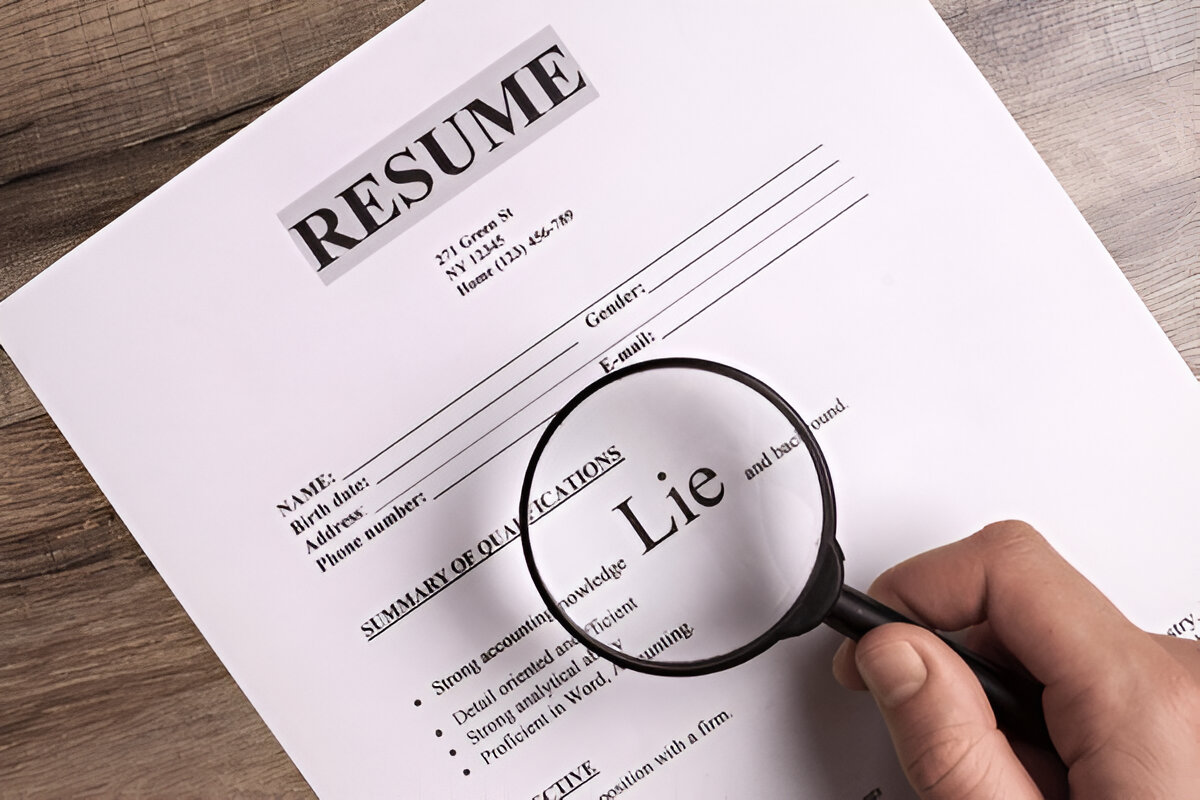In a competitive job market, some professionals are bending the truth to land interviews.
According to FlexJobs’ Job Search Trends Report, one-third of workers (33%) have admitted to lying on a resume or cover letter.
Some of the most common fibs?
- About one in five (19%) job seekers said they’ve faked enthusiasm or pretended to be passionate about a company’s mission.
- Another 11% said they’ve claimed to “love a fast-paced environment” or falsely claimed to be a team player when they prefer working solo.
- And 10% reported exaggerating job responsibilities or extending job dates to cover up unemployment gaps.

“Workers sometimes feel they need to stretch the truth to meet job market pressures and expectations from prospective employers,” Toni Frana, career expert manager at FlexJobs, a jobs site specializing in flexible, hybrid, and remote roles, said in a statement. “In an effort to avoid being overlooked by hiring managers, rank higher with ATS [applicant tracking system] scanners, or be the ‘perfect fit’ for a role, many are resorting to ‘embellishments’ for the sake of staying competitive.”
The report surveyed more than 2,200 U.S. professionals between June 10 and 24, 2025, on their job search experiences, including employer expectations and hiring challenges, to better understand the pressures and priorities of today’s workforce.
The report found that for most respondents, job searching is a daily activity. More than half (58%) said they look for new job openings at least once per day, and of this group, 39% said they search for jobs multiple times a day. One-third (33%) said they look for jobs at least once or more than once per week. The remaining 9% said they job search monthly.
According to respondents, one of the most consistent challenges with job searching is the application process. The survey showed 53% of workers ranked “unnecessarily long applications” as the aspect they “hated the most” when looking for a job. Other common frustrations were writing cover letters (17%) and updating resumes (14%).
Almost half (46%) of workers said they’re more pessimistic about their career prospects than this time last year, while 29% said they are more optimistic.
“The response marks a decline in job outlook optimism, suggesting how larger economic pressures and workplace trends, such as return-to-office mandates, layoffs, and job insecurity, may be influencing workers’ perceptions of career opportunities,” FlexJobs says.
At the same time, the report revealed a strong and steady demand for work-from-home jobs among professionals, with the vast majority of respondents stating that they prefer a fully remote (57%) or hybrid (40%) career moving forward. Three percent of respondents said they want to work in person, full time.
In fact, when asked what would make them more likely to apply to a job, respondents ranked remote work (83%), salary (73%), and flexible schedules (72%) as their top three factors. Other top benefits cited were:
- Meaningful work (63%)
- Having a good boss (57%)
- Work-life boundaries (56%)
- Healthy company culture (55%)
- Health insurance (50%)
- Amount of paid vacation time and sick time (44%)
- 401(k) retirement benefits (44%)
- Company reputation (41%)
- Minimal or no travel required (31%)
- Diversity, equity, and inclusion initiatives (27%)
“People may feel compelled to stretch the truth, but doing so can have negative consequences, as employers will eventually figure out that you were not completely honest in how you represented yourself,” Frana said. “Your best course of action is to represent yourself honestly and position your results, accomplishments, and impacts as strong bullets on your resume.”
Thanks for reading CPA Practice Advisor!
Subscribe Already registered? Log In
Need more information? Read the FAQs
Tags: cover letter, employees, job search, Payroll, resume




